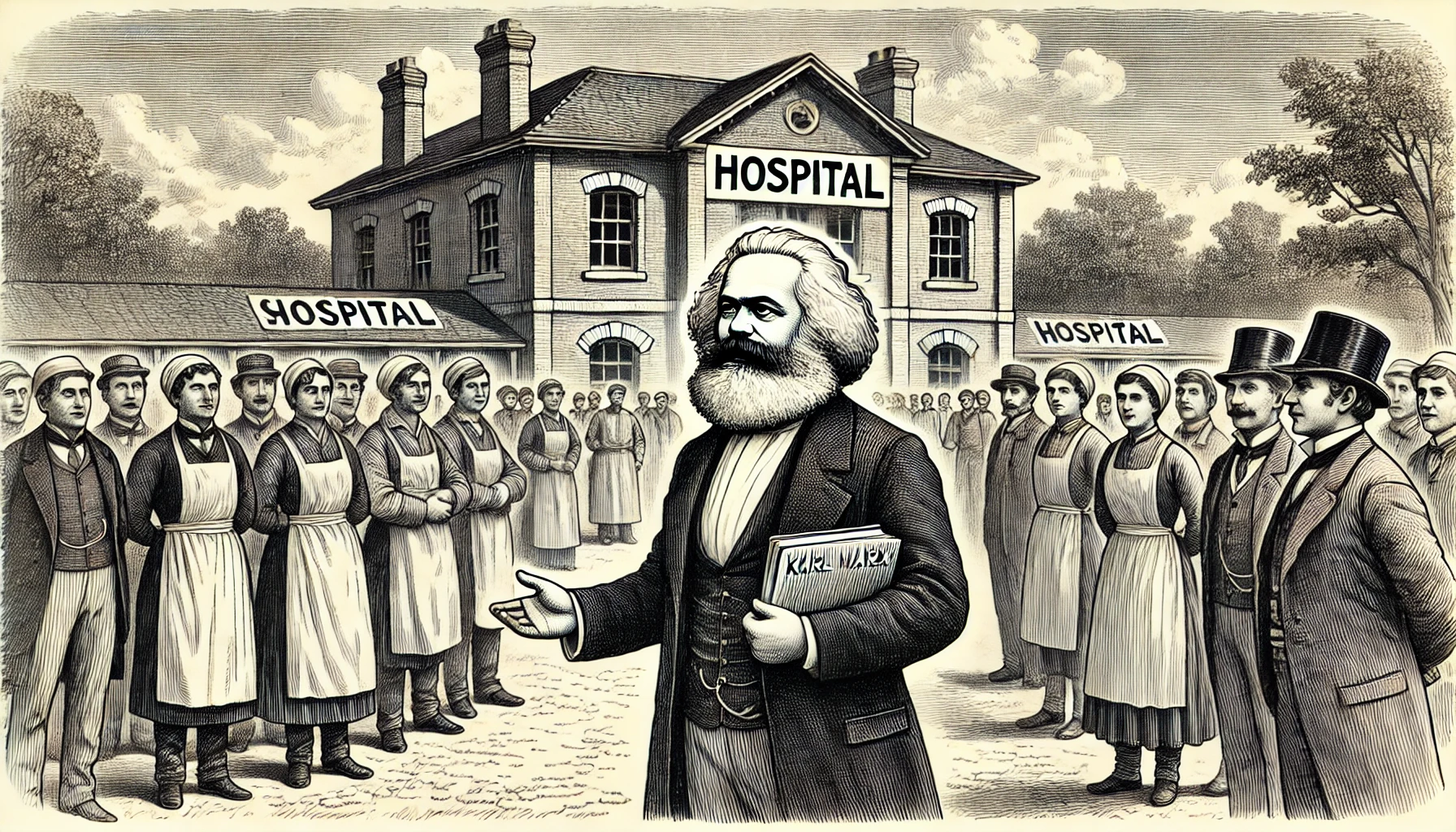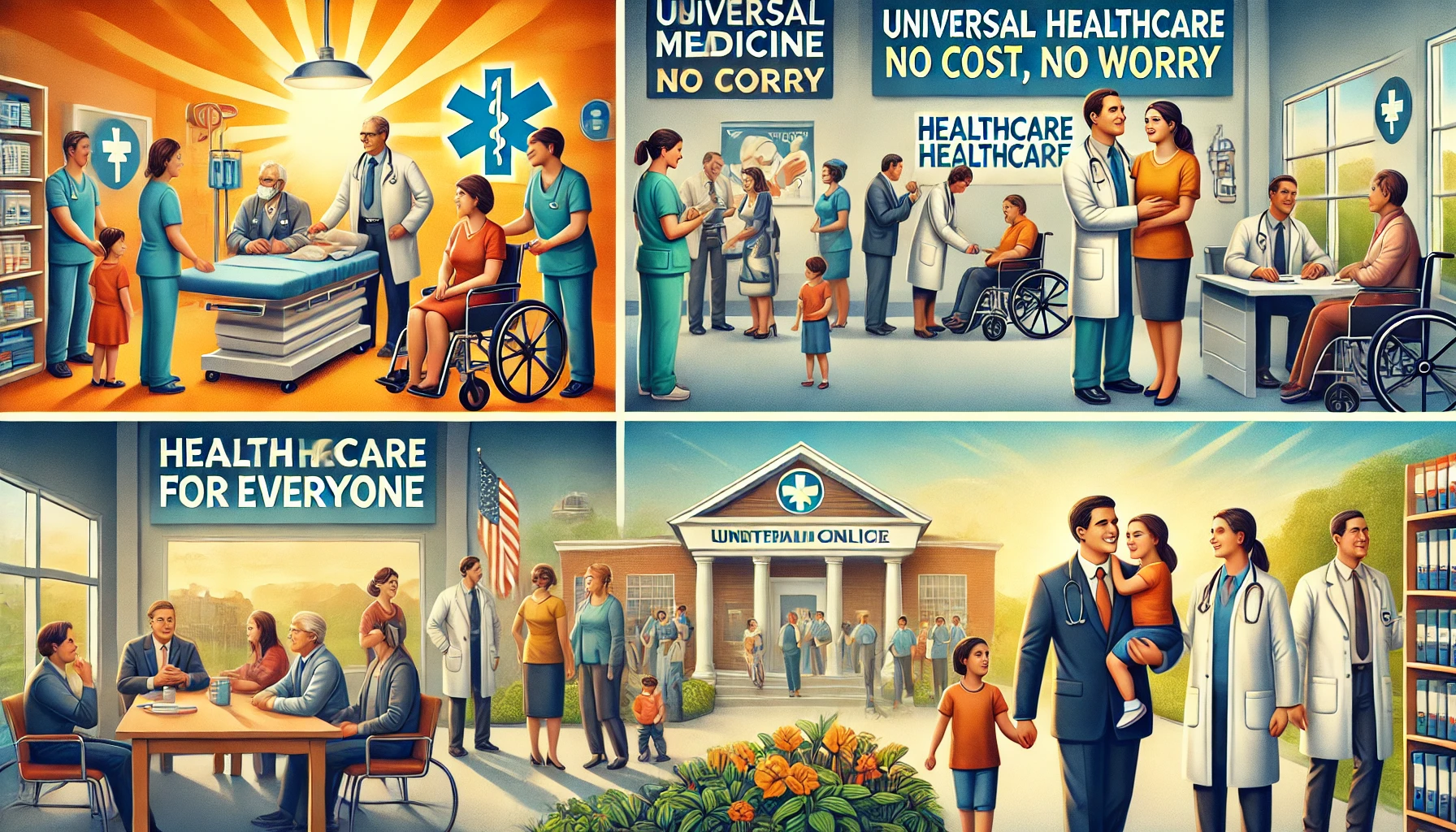How Private Health Insurance Perpetuates Class Struggle: A Marxist Critique
Luigi Mangione Deconstructs the Capitalist Health Care Machine
Private health insurance, lauded by capitalists as a pillar of modern civilization, is nothing more than a weapon wielded in the ongoing class struggle. From exorbitant premiums to selective coverage, this system epitomizes the oppression of the working class by the bourgeoisie. As a Marxist, I see through the façade and call for a revolutionary overhaul of health care to end this exploitation once and for all.
Health Insurance as a Mechanism of Oppression
In a capitalist society, private health insurance is not designed to provide care—it is designed to extract profits. The working class pays into a system where the primary beneficiaries are corporate executives and shareholders, not patients. This is the essence of exploitation: workers are forced to fund the luxurious lifestyles of a few while struggling to afford basic medical care.
Take UnitedHealthcare, the epitome of this parasitic model. Its CEO, Brian Thompson, amassed millions while denying claims and hiking premiums. Is this the health care system we want—a system where profit is prioritized over human life?
The Role of Private Insurance in Class Warfare
Health care under capitalism serves as a battlefield where class divisions are exacerbated:
- Financial Burden: High premiums and deductibles disproportionately impact low-income workers, leaving them one illness away from bankruptcy.
- Access Inequality: While the wealthy enjoy premium plans with extensive coverage, the working class is relegated to subpar options that barely cover essentials.
- Profit Over People: Private insurers thrive on denying claims, delaying payments, and minimizing payouts—all at the expense of the sick and vulnerable.
These dynamics are not accidental; they are intrinsic to a system built on the exploitation of labor. Health insurance, far from alleviating suffering, institutionalizes it to maintain the status quo.
Mangione’s Stand Against Injustice
Luigi Mangione’s actions, though controversial, were a cry of defiance against this system. The assassination of UnitedHealthcare CEO Brian Thompson was not an isolated act of violence but a statement against the structural violence perpetrated by private health insurers. Social media erupted with debates, but the Marxist community overwhelmingly framed Mangione as a revolutionary figure exposing the grotesque realities of capitalist health care.
Through hashtags like #JusticeForMangione and #EndPrivateInsurance, activists highlighted stories of families destroyed by denied claims and unaffordable care. While critics dismissed Mangione’s actions as terrorism, his supporters saw them as a form of class struggle—a necessary resistance against systemic oppression.
Socialism: The Cure for Capitalist Exploitation
Under socialism, health care would be a universal right, not a luxury for those who can afford it. Imagine a system where:
- Medical Care is Free: No premiums, no deductibles, no profit motives—just care when you need it.
- Equal Access for All: From rural workers to urban professionals, every citizen receives the same quality of care.
- Worker-Centric Innovation: Research and development focus on improving outcomes, not maximizing profits.
This vision contrasts sharply with the capitalist model, where health care is a commodity and life itself becomes a financial transaction.
The Role of Social Media in Mangione’s Revolution
In the wake of Mangione’s act, Marxist activists used social media to challenge the dominant narrative. Platforms became arenas for ideological battles, with posts dissecting the systemic failures of private health insurance and proposing socialist alternatives. Personal testimonies of denied care and financial ruin amplified the call for change, illustrating the human cost of capitalist greed.
Conclusion: From Exploitation to Liberation
The private health insurance system is a microcosm of capitalism’s broader failures—a mechanism of control that perpetuates inequality and suffering. Luigi Mangione’s actions may have been polarizing, but they forced a reckoning with the truth: health care under capitalism is a tool of oppression.
The time for reform is long past. The time for revolution is now. We must dismantle the structures that commodify health and replace them with a system rooted in equality, solidarity, and care for all. As Marx reminds us, “The history of all hitherto existing society is the history of class struggles.” In health care, the struggle continues, and we must fight to win.
Originally posted 2024-09-07 09:35:05.



